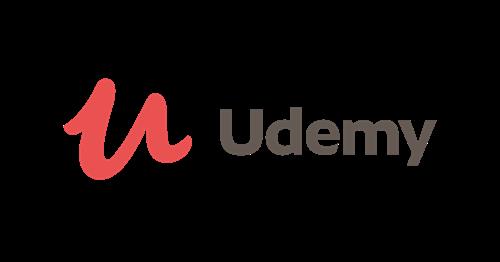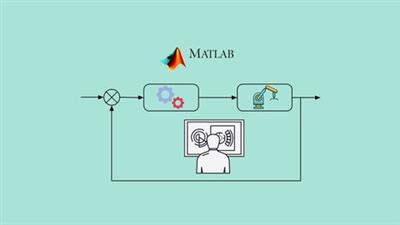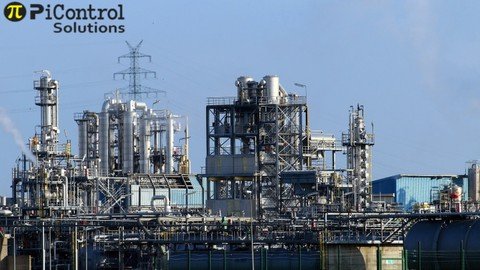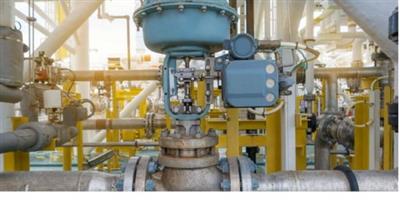Process Control & Pid Controllers Principles Design Tuning
"softddl.org"
11-11-2022, 14:04
-
Share on social networks:
-
Download for free: Process
-
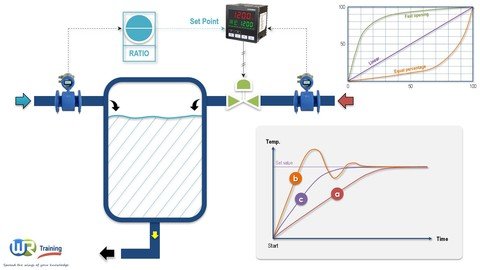
Published 9/2022
MP4 | Video: h264, 1280x720 | Audio: AAC, 44.1 KHz
Language: English | Size: 1.44 GB | Duration: 3h 24m
A practical approach to process control , control Loops , PID controllers & tuning using real-world process examples

Published 9/2022
MP4 | Video: h264, 1280x720 | Audio: AAC, 44.1 KHz
Language: English | Size: 1.44 GB | Duration: 3h 24m
A practical approach to process control , control Loops , PID controllers & tuning using real-world process examples
What you'll learn
Learn the essentials of process controls and PID controllers for a successful career in process industries
Successfully draw the correct information from basic to advanced process control loops
Master the intricate terminological details of process control (process variable, set point, error, offset, load disturbance...)
Identify any process control loop and describe its main tasks and functionalities
Describe the basic function and method of operation for the main control loop components (sensor, transmitter, controller, actuator, control valve...)
Differentiate between feedback and feedforward control loops
Explain the basic implementation process for each of the following types of control: Cascade, ratio, split range.
Differentiate between On/Off, discrete, multi-step and continuous controllers
Describe the basic mechanism, pros and cons of the following modes of control action: On/Off, Proportional (P), Integral (I), Derivative (D), PI, PID...
Describe the general goal of PID controller tuning
Apply the Ziegler Nicholls method to tune P, PI and PID controllers for optimum performance
Put your knowledge to the test at the end of each section with a valuable technical quiz (160+ questions and solved problems)
Requirements
Some engineering or field knowledge is preferable but not mandatory. All the concepts are explained in depth using an-easy-to-understand language to allow students to build their knowledge from the ground up
Having attended our "Introduction to Process Control & Instrumentation" training course is a plus but not mandatory
Please note that the mathematics in the PID section is undemanding. All the work can be done with a hand-held calculator
Description
Control in process industries refers to the regulation of all aspects of the process. Precise control of level, temperature, pressure and flow is important in many process applications.Designed around a series of practical examples which we work through to a solution, this valuable course is an essential guide to a complete understanding of :functioningdesigntuning of process controls and PID* controllersUseful reference data, technical recommendations, field observations and numerous process control schemes are presented in an-easy-to-use format.The course also cautions the process control engineer that the performance of a properly designed process control system can be severely compromised when used in conjunction with incorrect PID* controller settings.PID* controller tuning guidelines and their rationale according to the Ziegler Nicholls method, as well as some precautions, are offered to ensure optimum performance.Typical tuning examples have been included to assist in understanding how specific formulae are applied.In addition, you will find at the end of each section a technical quiz to test your knowledge. If you pass : wonderful ! If not, you can watch the video lectures again or ask us for help in the Q&A section.So with no further ado, check out the free preview videos and the curriculum of the course and we look forward to seeing you in the first section.Thank you for your interest in our online courses. We hope to see you there.WR TrainingSpread the wings of your knowledge* When PID is mentioned, it is with reference to Proportional, Integral and Derivative control actions
Overview
Section 1: Course introduction
Lecture 1 About the course
Section 2: Introduction to controls
Lecture 2 Introduction to controls
Lecture 3 Do we need to control at all ?
Lecture 4 Control terminology
Lecture 5 Elements of automatic control
Lecture 6 Assessing Safety Stability & Accuracy
Lecture 7 Summary of terminology
Lecture 8 Elements of a temperature control system
Lecture 9 Automatic process control
Lecture 10 Components of an automatic control
Lecture 11 Before proceeding to the next section
Section 3: Basic control theory
Lecture 12 Modes of control
Lecture 13 On/Off control
Lecture 14 Continuous control
Lecture 15 Proportional control (P)
Lecture 16 Proportional temperature control example
Lecture 17 The concept of gain
Lecture 18 Reverse vs direct acting control signal - FREE
Lecture 19 Industrial Example - The FOXBORO 43AP Pneumatic Indicating Controller
Lecture 20 Gain line offset - Proportional effect
Lecture 21 Manual reset
Lecture 22 Integral control (I): Auto reset action
Lecture 23 Integral control (I): Overshoot and wind-up
Lecture 24 Derivative control (D)
Lecture 25 Summary of modes of control: P / PI / PD / PID
Lecture 26 Time constant
Lecture 27 Hunting
Lecture 28 Practical Example: The effect of hunting on a steam system
Lecture 29 Lag
Lecture 30 Rangeability
Lecture 31 Before proceeding to the next section
Section 4: Control loops
Lecture 32 Introduction
Lecture 33 Control loops
Lecture 34 Open loop controls
Lecture 35 Closed loop controls
Lecture 36 Feedback control
Lecture 37 Feed-forward control
Lecture 38 Single loop control
Lecture 39 Multi-loop control
Lecture 40 Cascade control
Lecture 41 Ratio control
Lecture 42 Split range control
Lecture 43 Operations on control signals
Lecture 44 Before proceeding to the next section
Section 5: Introduction to process dynamics
Lecture 45 Introduction
Lecture 46 Process reactions
Lecture 47 Before proceeding to the next section
Section 6: Choices and selection of process controls
Lecture 48 Introduction
Lecture 49 Application
Lecture 50 Self-acting controls
Lecture 51 Pneumatic controls
Lecture 52 Electric controls
Lecture 53 Electropneumatic controls
Lecture 54 What you should remember
Lecture 55 What type of controls should be installed ?
Lecture 56 What type of valves should be installed ?
Lecture 57 Controllers
Lecture 58 Before proceeding to the next section
Section 7: Installation and commissioning of process controls
Lecture 59 Valves
Lecture 60 Actuators and sensors
Lecture 61 Power and signal lines
Lecture 62 Electrical wiring
Lecture 63 Controllers
Lecture 64 Setting up a controller: The Ziegler-Nicholls method
Lecture 65 Bumpless transfer
Lecture 66 Self-tuning controllers
Lecture 67 Before proceeding to the next section
Section 8: Computers in process control
Lecture 68 Introduction
Lecture 69 History
Lecture 70 More on Fieldbus
Lecture 71 Benefits of Fieldbus
Personnel needing to learn the essentials of process control and PID controllers,Control, Process, Chemical and Design engineers & technicians,Instrumentation engineers & technicians,Maintenance engineers & technicians,Experienced personnel as a refresher course and to broaden their knowledge,Instructional designers and those involved in writing manuals and operational procedures,Anyone else with an interest in how process control and PID controllers should be designed, tuned and used in process industries
Homepage
https://www.udemy.com/course/process-control-pid-controllers-principles-design-tuning/
https://rapidgator.net/file/d5860ac609b70bef3e93401b4a5821d5/ybnxf.Process.Control..Pid.Controllers..Principles.Design.Tuning.part2.rar.html
https://rapidgator.net/file/f8133c355010bc4f0d71589c6e8871ed/ybnxf.Process.Control..Pid.Controllers..Principles.Design.Tuning.part1.rar.html

https://uploadgig.com/file/download/5b83f520524960ab/ybnxf.Process.Control..Pid.Controllers..Principles.Design.Tuning.part1.rar
https://uploadgig.com/file/download/69a69Af820852b1f/ybnxf.Process.Control..Pid.Controllers..Principles.Design.Tuning.part2.rar

https://nitroflare.com/view/59B43AB9A79506D/ybnxf.Process.Control..Pid.Controllers..Principles.Design.Tuning.part1.rar
https://nitroflare.com/view/FA77AA212E5A04E/ybnxf.Process.Control..Pid.Controllers..Principles.Design.Tuning.part2.rar
Links are Interchangeable - No Password - Single Extraction
The minimum comment length is 50 characters. comments are moderated

